Republican Lawmaker Slams Biden Envoy For 'Hiding From Congress'
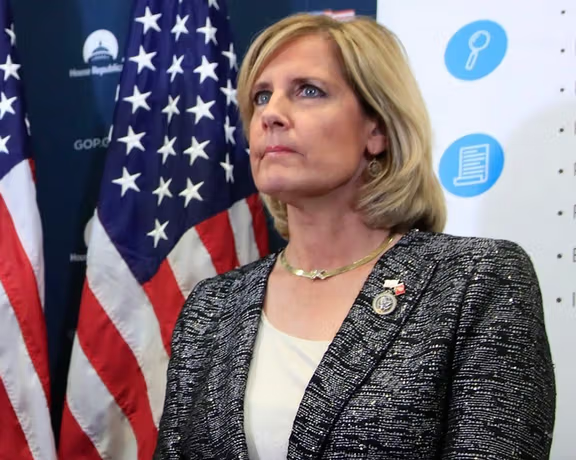
A Republican lawmaker says as Washington is inching closer to the possibility of “another failed nuclear deal with Iran”, Special Envoy Robert Malley is hiding from Congress.

A Republican lawmaker says as Washington is inching closer to the possibility of “another failed nuclear deal with Iran”, Special Envoy Robert Malley is hiding from Congress.
New York Representative Claudia Tenney said on Thursday that “with all troubling news coming to light” about the agreement with Iran, Malley has yet to appear before Congress for a public hearing to provide the American people with an update on the negotiations.
In an opinion piece published in Newsweek earlier in the day, she said since his appointment on January 28, 2021, “Malley has refused to testify publicly before Congress, unlike his predecessor, Brian Hook, who testified on several occasions”.
She said Malley is refusing to testify because of revelations about the Vienna talks over the last several weeks.
Tenney said that “as Russia wages an unprovoked and murderous war in Ukraine, President Biden is bizarrely fixated on securing Russian cooperation to finalize a nuclear deal with Iran”.
Criticizing the administration for not being transparent, the lawmaker said Biden does not want people to know that Tehran could receive “as much as $90 billion” sanctions relief in return for minimal concessions and will remove sanctions on “some of Iran's worst human rights abusers and terrorists” as well as on the Revolutionary Guard.
She added that the administration “plans to surrender nearly $7 billion in ransom for the release of four wrongfully detained American hostages in Iran” and the “biggest secret is that it has no plans at all to involve Congress in the negotiating process”.
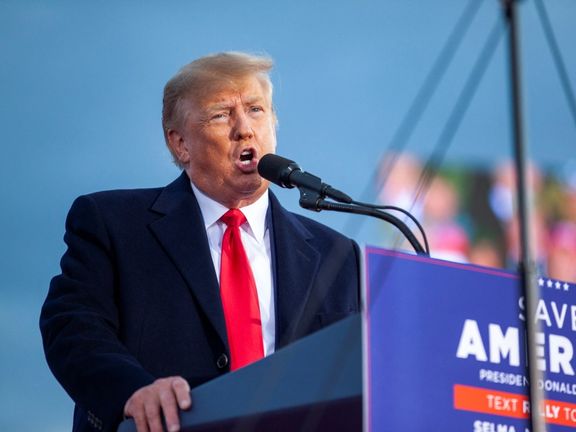
Former US president Donald Trump says the new nuclear deal is much worse than the original 2015 Obama-era agreement and can usher in “the end of Israel”.
Talking through telephone to Fox News on Wednesday, Trump warned of the potential for a weaker agreement with Tehran, saying that the Biden administration's attempt to restructure and re-sign the deal could mean Israel's doom, unless “Israel’s going to have to take up the fight”.
Referring to his withdrawal from the JCPOA, he said he ended “a terrible deal but it was better than the deal” they want to sign with the Islamic Republic now, noting that “Israel is in tremendous peril, tremendous danger… because there is a very quick roadmap for them (Iran) to have a nuclear weapon and a lot of nuclear weapons”.
Criticizing the administration for the potential agreement, he said, “What they’re doing in Congress, and what Biden is doing, I can’t imagine that they would allow this to happen”.
Earlier in April, a group of US Republican senators called on the administration to provide Israel with the military capabilities it needs to defend itself from a nuclear-armed Iran, reiterating that the administration “would put at risk the existence of the State of Israel and the governments of our Arab allies, destroy America’s position in the Middle East, and ultimately threaten the US homeland”.

The United Nations nuclear watchdog has reported Iran told it April 13 that a new factory would begin making parts for centrifuges, which enrich uranium.
According to a confidential report to member states from the International Atomic Energy Agency (IAEA), the plant at Natanz was to start work that day, although according to the Reuters news agency, which has seen the report, the IAEA did not say if the work had commenced, suggesting the watchdog had not had subsequent admittance.
It is now enriching with hundreds of advanced centrifuges, some of them enriching to a purity of up to 60%, close to the 90% that is weapons-grade.
Iran has since 2021reduced access of IAEA inspectors to levels required under the Nuclear Non-Proliferation treaty, meaning they lack access to manufacturing plants where there is no nuclear material.
Iran and the IAEA have maintained a temporary arrangement since early 2021 whereby Iran allows monitoring equipment, including cameras, but will not give IAEA access to the data in advance of agreement to renew the 2015 nuclear deal, the JCPOA (Joint Comprehensive Plan of Action).
The manufacturing machinery installed at Natanz was moved, the IAEA reported, from the workshop at Karaj, west of Tehran, where Iran suspended the temporary access arrangement after an apparent attack, blamed on Israel, last June. The IAEA said it had finished installing surveillance cameras at Natanz April 12 and had removed its seals.
Second new plant
Iran said January it was also opening a new manufacturing plant at Esfahan, where an early part of the enrichment process takes place. The Natanz site includes an enrichment plant built underground to offer some protection from airstrikes.
Iran began to exceed the limits of the JCPOA in 2019, the year after the United States left the deal and imposed ‘maximum pressure’ sanctions and is now using relatively advanced centrifuges barred under the JCPOA. While the deal capped uranium enrichment at 3.67 percent, Iran had by February accumulated a stockpile of 182kg of uranium enriched to 20 percent and 33kg enriched to 60 percent, which is near the 90 percent considered ‘weapons grade.’
With nuclear talks in Vienna paused after a year with Iran and world powers unable to agree on how to revive the JCPOA, opponents of the deal in both Washington and Tehran have stepped up their campaigns.
Iran’s decision to reduce IAEA cooperation and to enrich to 20 percent followed legislation passed by parliament after the killing of nuclear scientist Mohsen Fakhrizadeh in November 2020 and , widely attributed to the Israeli intelligence extra-territorial branch Mossad.
Parliament's decision to pass the legislation also came after the election of President Joe Biden who had vowed to return to the JCPOA
Hardliner critics of the JCPOA have increasingly argued that Tehran gained nothing from the deal and should stick to strict conditions in nuclear talks.
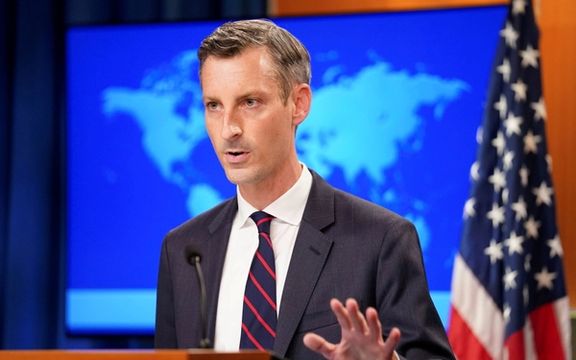
The United States underlined Wednesday that it is united with its allies and partners around the world and in the Middle East to respond to any Iranian attack.
"We are united in our resolve against threats and provocations, and we will work with partners and allies around the world and in the region to deter and to respond to any attacks that may be carried out by Iran," State Department Spokesman Ned Price said at his briefing Wednesday.
The comment was made in response to a question on an IRGC commander's remarks Tuesday who said Wednesday that the killing of all American leaders would not be enough to avenge the US assassination of Qods Force commander, Ghasem Soleimani in January 2020.
Brigadier General Mohammad Pakpour, commander of IRGC's Ground Forces, made the remark after a visit to Soleimani's grave in Kerman. "Therefore, we must avenge him by other methods," Pakpour said.
"Also, there were shattering responses to the moves of the Zionist regime and the US in the region," he added, reminding that the IRGC had fired missiles at US bases in Iraq a few days after the assassination.
Price argued that most of the Biden administration's sanctions on Iran were imposed on the IRGC. "We are committed to seeing to it, using every appropriate tool, that we respond to, that we deter, the malicious activity that the IRGC engages in."
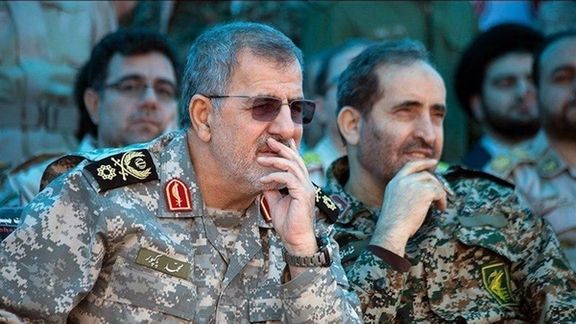
State Department's Deputy Spokesperson Jalina Porter also said at the briefing that out of the 107 designations made by the Biden administration in relation to Iran, 86 specifically targeted the IRGC-related persons as well as affiliates. She also told reporters that Biden shares the view of General Milley that "the IRGC's Qods Forces are terrorists" but declined to comment on any of the topics in the nuclear talks.
President Joe Biden’s administration, while committed to restoring the JCPOA, has been hesitating in delisting the Guards, that are not just a military organization but also an internal security force and a business conglomerate.
Mohammad Marandi, the Iranian negotiation team's media adviser, told Fars news agency Thursday that it was pressure from Biden's opponents at home and Israel's supporters that caused "Americans' change of behavior" and the slowing of the progress of the talks.
"Eventually this had led to the Biden administration's loss of courage to achieve a deal … The halt in the talks is more detrimental to the US than to Iran," he added.
Republicans in the US have strongly opposed the administration's consideration of removing Foreign Terrorist Organization designation from Iran's Revolutionary Guards (IRGC) whereas Tehran insists that without that there will not be a deal.
"The removal would betray our allies in the region including Israel," said conservative Republican Senator Bill Hagerty in a tweet Wednesday. In a letter to Biden Monday, Hagerty and several other Republican senators called such a step "wildly misguided" and said the IRGC is "actively trying to kill US politicians and public servants on UA soil."
Talks that began between the new administration of President Ebrahim Raisi on November 29 were halted over a month ago after negotiators reached a deadlock over Iran's demand for delisting of the IRGC.
At a meeting with heads of the three branches of government and some other current and former senior officials on Tuesday, Supreme Leader Ali Khamenei who closely supervises the talks described the progress of the talks as "good", but this was later changed into "the country's diplomacy is moving in a good direction" on all his social media accounts and website as well as most media outlets.
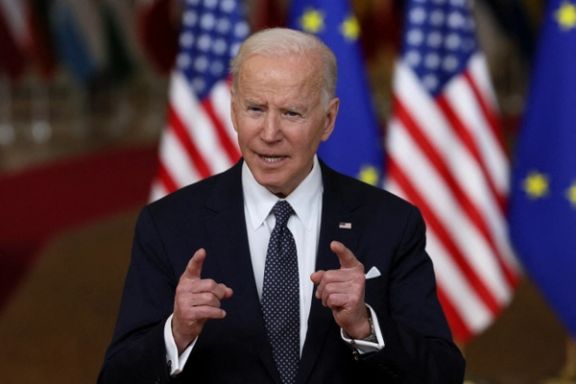
A group of 46 US retired generals and admirals are urging President Joe Biden and Congress to reject the new nuclear deal currently being negotiated with Iran.
In an open letter published on Wednesday, they said this “dangerous” agreement is “poised to instantly fuel explosive Iranian aggression and pave Iran’s path to become a nuclear power, threatening the American homeland and the very existence of America’s regional allies.”
According to authors of the letter, which was penned in coordination with the Jewish Institute for National Security of America (JINSA), the accord currently being negotiated “will enable the world’s leading state sponsor of terrorism to cast its own nuclear shadow over the Middle East.”
Calling the potential new deal “shorter and weaker” than the original agreement, they said it could “leave Iran twice as close to a nuclear weapon” as the 2015 accord, would “allow restrictions on Iran’s nuclear program to start to lapse in two years”, and would “not prohibit Iran’s development of intercontinental ballistic missiles”.
The retired American military leaders also voiced opposition to removing the Islamic Revolutionary Guard Corps, which they described as Iran’s “main terrorist wing responsible for the deaths of at least 600 American troops”, off the US terrorist list, a key Iranian demand.
Lifting sanctions on Iran would “earn hundreds of billions of dollars for the radical regime in Tehran to fuel greater aggression against U.S. soldiers and our allies in the region”, they also warned.
The letter also noted that Moscow has played a “central role” in crafting the draft deal at a time when Russia is “ruthlessly attacking [Ukraine] and, by brandishing its nuclear weapons, forcing the rest of the world largely to stand on the sidelines”.
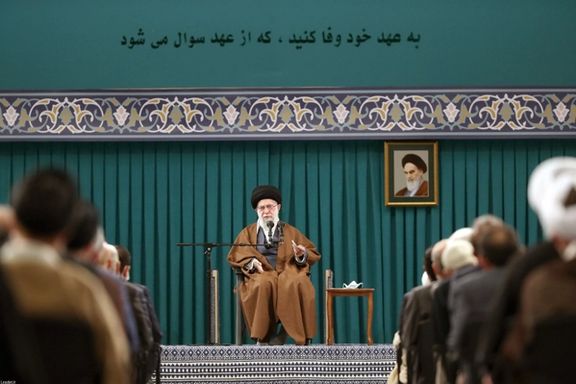
The twitter account of Iran’s Supreme Leader Ali Khamenei has deleted the phrase "the nuclear talks are going well” from remarks he made on Tuesday.
In a meeting with a group of senior Iranian officials Khamenei had said the talks “are going well while the Iranian negotiating team will continue to inform the president, the Supreme National Security Council and other officials on the process, make relevant decisions, and move forward”.
However, in the new post on Wednesday replacing the earlier one, the first part of the sentence was changed to “The country's diplomacy is moving in the right direction”.
Following the revised tweet, several social media accounts close to Saeed Jalili, a former secretary of the Supreme National Security Council, wrote that Khamenei had not made such a statement, and that the post was "an example of lies and distortion”.
Jalili, who was Iran's top nuclear negotiator under former president Mahmoud Ahmadinejad from 2007 to 2013, is a leading members of a so-called “principlist” group described as the "extreme end of the fundamentalist camp" and "Iran’s most right-wing party", and staunch critic of the original 2015 deal.
During the past weeks, some lawmakers who are also members of the party, including Mahmoud Nabavian and Ali Khezrian criticized the Vienna talks, saying that the possible agreement was practically no different from the JCPOA, which they opposed. Some believe that their criticism is a response to the removal of Hamidreza Asgari, who is close to Jalili– from the negotiating team.